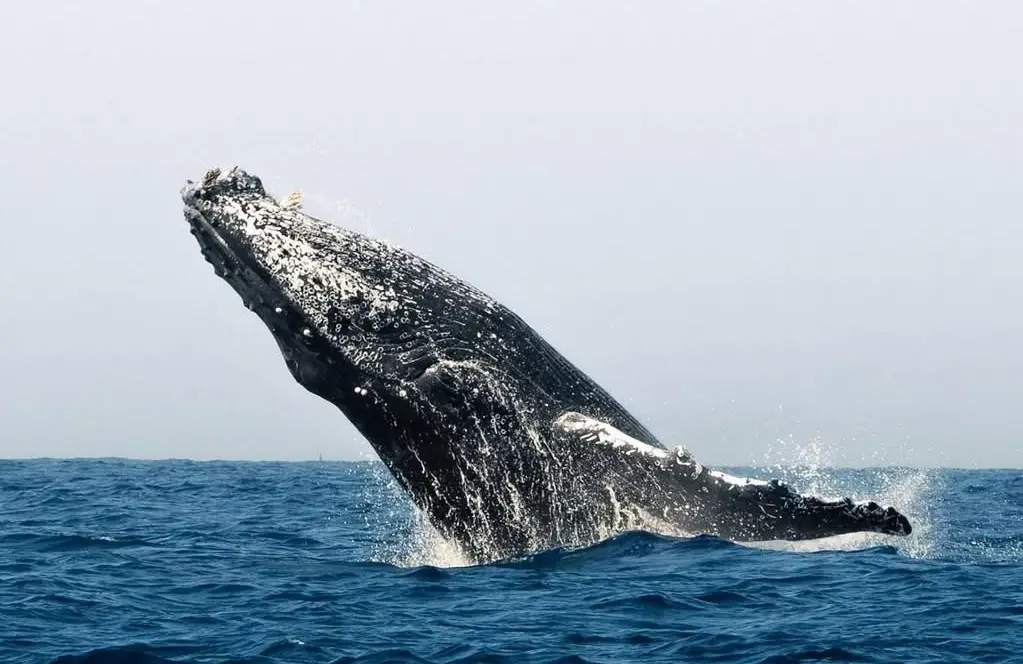Why are blue whales going silent? Krill theory explored as vocalizations decrease by 40% over six years
-
 Blue whale (Image via Insatgram/@bluewhaleshub)
Blue whale (Image via Insatgram/@bluewhaleshub)Blue whales, the planet’s biggest animals, are becoming quieter, and scientists believe the situation may be more troubling than previously thought. New research has found that the number of blue whale vocalizations decreased by about 40% in comparison to a reference time period of six years earlier, in the California Current Ecosystem, a foraging area off the U.S. West Coast.
These results show a strong relationship between the decreased vocalizations and the steep decline in krill, a primary food source for blue whales, which were decimated during the marine heatwave called The Blob.
According to a report by the Independent, the Blob originated in 2013 and was an unusually persistent and dense area of warm water, extending across thousands of miles of the Pacific ocean.
By 2016, parts of the ocean were measured to be over 4.5°F warmer than average. Abnormally warm water resulted in a dramatic disruption of marine ecosystems and the development of harmful algal blooms (HABs) that spread toxins throughout the food chain, and caused further krill declines, eventually extending to sea lions and whales.
Krill, which are tiny shrimp-like crustaceans, form the basis of the blue whale's diet. A single adult whale can eat four tons of krill daily (National History Museum).
A look into the reson behind blue whales going silent
With their food source essentially removed, blue whales must expend greater time and energy to look for food. This stress of searching and also the stress of foraging for food is believed to be the factors associated with decreased vocalization behaviour.
"When you really break it down, it’s like trying to sing while you’re starving. They were spending all their time just trying to find food," biological oceanographer John Ryan told National Geographic.
To sing, to make calls and to vocalize, blue whale songs are adapted to low-frequency, long-distance calls that confer additional physical load. In times of negative energy balance, vocalizations are less important than feeding.
In a six-year study of multiple hydrophones monitoring whale sounds in the North Pacific, reports have found less blue and fin whale songs during two-thirds of three interannual shifts after 2017. In particular, blue whales were foraging more widely in 2019, due to low krill density within their habitat, which further emphasizes the link between food and vocal behavior.
Blue whale can reach upto 100ft in lengthpic.twitter.com/y3mFJ7uchM
— Scary Underwater (@scaryunderwater) December 5, 2024
Unlike blue whales, humpback whales, which have a more diverse diet, exhibited less adverse effects. Researchers even observed increased vocalizations from humpback whales during the same time frame, indicating that their diet allowed them to better respond to the changing ecosystem.
Researchers are still monitoring and assessing the underlying substantiveness from these findings. Not only is the blue whale vocalization decline in itself a sign of food stress but also may be reflective of a larger ecological instability in the ocean.
"There are whole ecosystem consequences of these marine heat waves... If they can’t find food, and they can traverse the entire West Coast of North America, that is a really large-scale consequence," Marine biologist Kelly Benoit-Bird told New York Post.
With marine heatwaves, like The Blob, occurring three times as often since the 1940s, researchers have pointed out the importance of monitoring and understanding changes in the ocean.
TOPICS: Human Interest, The Blob, Blue whale, California Current Ecosystem, humpback whale, krill, Pacific ocean, whales
- What happened to Sammie Mosier? HCA Healthcare and more pay tribute to beloved nurse following sudden death
- “This is a family tragedy”: Marjorie Taylor Greene urges empathy after Trump refers to Rob Reiner as ‘Tortured’ and ‘Struggling’ in condolence message
- Who was Anthony Geary? All about General Hospital star who died at 78
- Nick Reiner is in custody on $4 million bail after his parents, Rob Reiner and Michele, were killed in their LA home